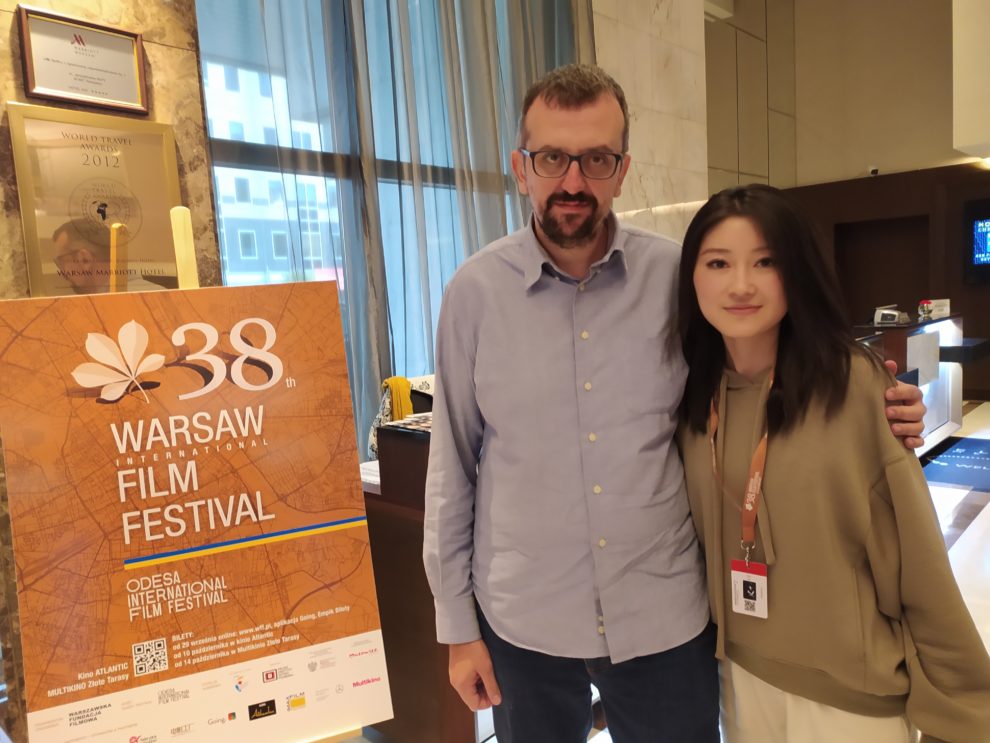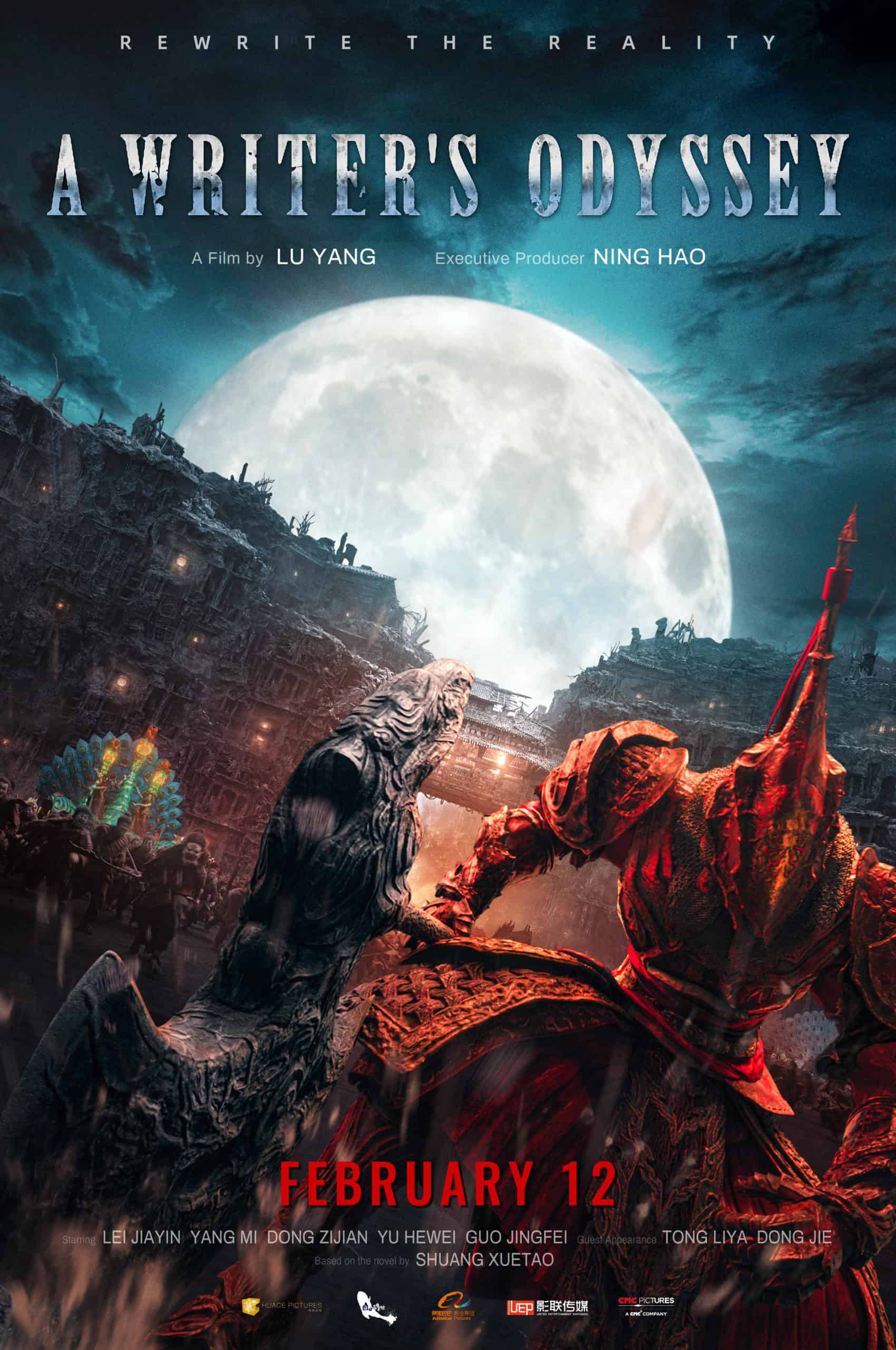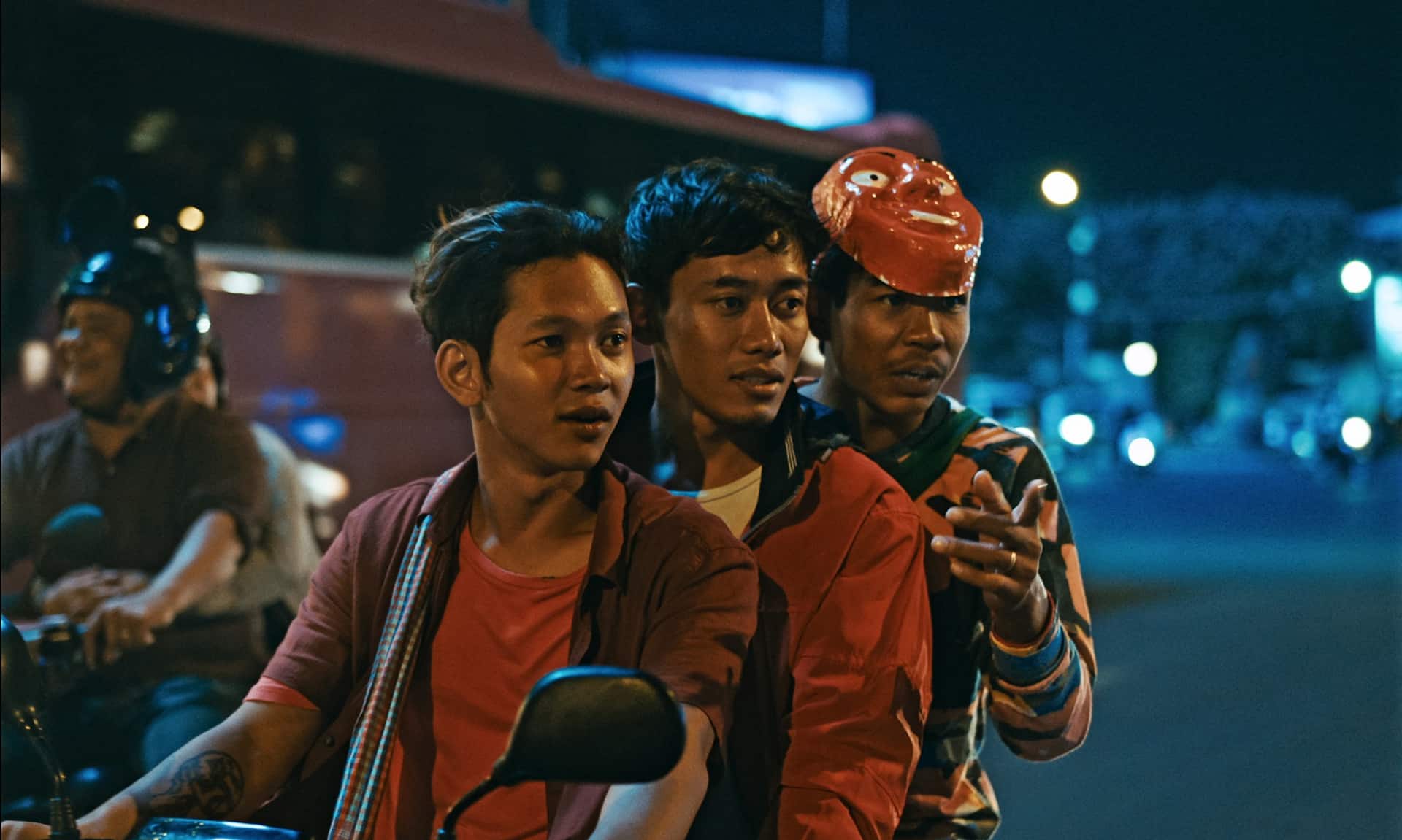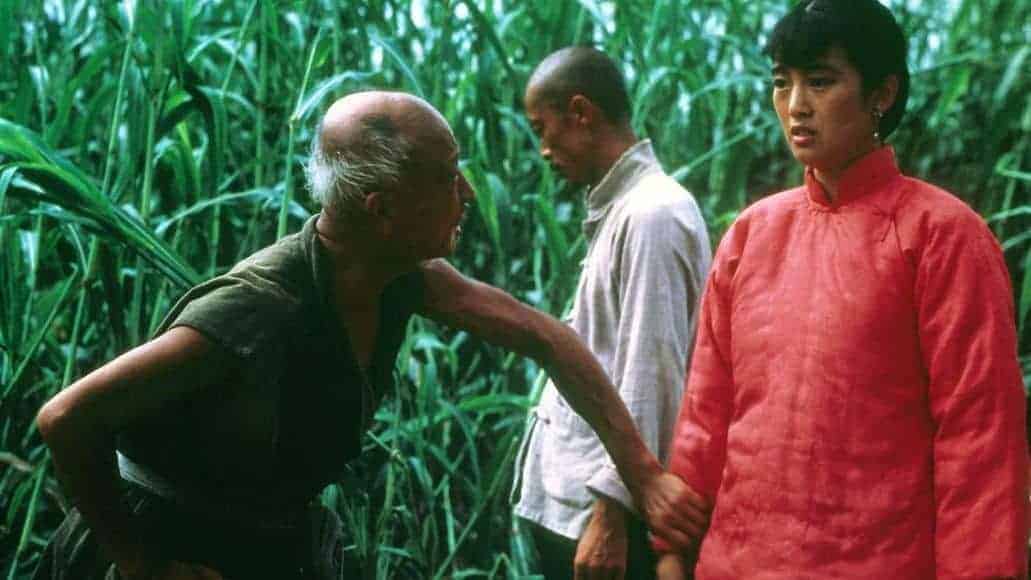Ran Li is a chinese screenwriter and director based in Beijing and Prague. After graduating from Tsinghua University, she became a lawyer before switching her career to filmmaking. Inspired by European cinema, she went to the Prague Film School and graduated the following year with the short film “Lucie”. Her short films have been selected for more than 60 film festivals and won over 20 awards worldwide. “Till Love Do Us Part” is her first full-length feature film.
On the occasion of “Till Love Do Us Part” screening at Warsaw Film Festival, we speak with her about the story of the film, the cultural differences between China and Europe, the characters and the actors, and many other topics
Till Love Do Us Part screened at Warsaw Film Festival

Tell me a bit about the story of the film. Is it based on personal experiences?
Yes, in a way. I was a law student, I graduated from the top law school in China and then I got this one year scholarship to study in Amsterdam. There, I was exposed to a lot of artistic people and the local art scenes and alternative cinema. I was volunteering in one of the cinemas in Amsterdam and I realized that maybe it is possible to become a filmmaker. I was always a moviegoer when I was a kid, but in China, I didn't think it was possible (as a student, to pursue film as a career). But when I was in Amsterdam, everyone around me was artistic in one way or another, and I started shooting documentary shorts. I made a few short documentaries and they went to some amazing film festivals. I didn't have any background in cinema, so after my law master degree in Amsterdam I applied for a film school in Czech Republic. There I spent a year learning how to make fiction films. I graduated with a short film, “Lucie”, that was in 2015-2016. The short film got into over 60 film festivals and it was especially successful in China. It won many awards which made this feature film possible.
When I graduated from Prague and went back to China, all my friends were living a very stable, decent middle-class life, while I was doing something very different. I could feel an impulse to break the shackles of ordinary life was brewing in almost everyone's mind. Although they were law school students like me, most of them pursued a career in finance or politics, as they were considered more rewarding. And for women, the wealthiest ones were the ones who married well. My story was inspired by this reality.
Europe and China, which place you like better?
In my film, I did not want to create these two opposite worlds and show which one is better, because there are pros and cons for both. To study film or pursue art in a more creative environment and express oneself better, the choice would be Europe. In China, if you go to film schools, the environment is, you start taking paid jobs from the first year. So you are inevitably more commercially driven from the beginning. Very few people would wait for 3-5 years to make a feature and send it to film festivals. But on the other hand, people in China are more grounded and practical. They are more serious with their goals in life, and they put more effort and hard work into realizing it. That is basically what is in the film. The female protagonist, if she wants security, a smooth sail into the future without worrying about money and survival, then marrying into a good family and staying in China would be the best choice. If she wants to risk and to explore, to open herself to the other side of the world, Europe is a better place for her.
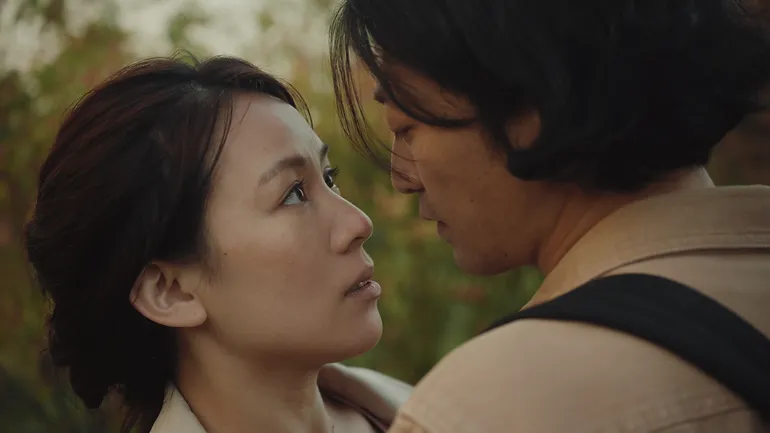
So, if you were in the protagonist's position, would you do the same with her?
Ahh, that is an interesting question. I am someone who is more independent and willing to create changes in life, and I am more willing to go against the social expectations rather than follow them. And my parents are very open and supportive with my choices. So I was never in her shoes. But I have so many female friends who are like the protagonist of my film, smart, well-educated, but cannot escape the fate of being trapped in materialistic marriages and social expectations, silently enduring the fate of being a“good girl”. To answer your question, I would totally go for the change, as Fan, the male protagonist says in the film “the script of life changes all the time, even if you do nothing, the world still changes you. Or you can create change for yourself.”
Do you like your protagonist, would you be friends with her?
Yes, absolutely. I would love to be friends with her. I like that she is smart and shy, and she's not pretending. In real life, I enjoy spending time with this type of people, instead of people who are very talkative, who think they know everything.
Which is essentially her mother-in-law, right?
Yes, a little. But her mother-in-law is cool in her own way, because she really knew; she has been there and done that. Her advice to the protagonist is a reflection of how things work in China. In China, people are definitely leaning more towards financial security and family prosperity. I have seen many people in China, in their marriage which is considered ‘unhappy' by western standards, but they think they are happy, they think that's how it should be. In Europe, people care more about love and respect to each other over financial stability. With this film, “Till Love Do Us Part”, I wanted to discuss what love is. Relatively speaking, the European way of defining love is more ideal, which is how we were taught when we were young, “Love triumphs all” etc, but in China, there is another layer to love, which includes heavy responsibility and compromise. For instance, some of my female classmates, when they were in their early 20s, were dating men who were 10-20 years older than them, and at that time, I did not understand. Later, the more time I spend in China, the more I realized that love for them also means security and material support, like the father figure they're looking for, and the love they have to their partners is real. So there is a culture difference here.
Tell me a bit about the ending. Why did you choose to finish the film like that, and not give a happy ending let's say.
I don't like happy endings, I don't know why, the same happened with my short film and also the film I am writing at the moment. For me, happy endings aren't real. Things change and people change. I want the ending to be realistic, but also with a sense of hope. I would say the film has a hopeful ending. Only when she wakes up in the bus, she can start life anew. Sometimes, real change only happens after we lose everything. The more we still possess, the less likely we can start over. And I don't think the protagonist would regret her decision, as life is an endless journey of self-growth. There is often no right answer, we learn from our mistakes and experience. And what pushes us toward true maturity and freedom is the determination to change and the pain that comes with it.
Tell me a bit about the husband. For me he seems like a victim in the end, being in the middle of two rather strong women
I think we are all shaped by our family and society to an extent. I didn't want any villains or victims in my film, because I believe in real life, everyone has his/her struggle and point of view. The husband character is quite typical in China. When I did some screenings in China, most people could relate to the husband, but here, in Europe, people think they are watching a horror film, when they watch him in the movie. It's also a cultural difference. He has a plan and a clear vision what he wants from life and how he wants it to be done. Of course, he is condescending, he disrespects her, but in real life, I have seen worse. I have a friend who is working in finance in a very high position, and he didn't even know which college his wife attended. He didn't care. He provided for his wife and his wife's family, but he's not interested in her as a person. And his mother's attitude in the film is also typical. I also got audiences in Europe asking about the mother-in-law, “how can parents interfere with their children's life to such an extent?” But that is very very real in China.
What about the theater director in the film? I think HE is the villain of the story.
Fan, the theater director, is inspired by people I know in Europe. I don't think he's the villain, he is just being himself. Creative people have edges, they can be very attractive but also unpredictable. That's his nature. He's not like anyone the female protagonist has met in her life. He leads her to her inner desire and opens the door to a new world to her. In this sense, he is her mentor (as well as lover).
Tell me a bit about the dinner scene, when the two couples meet
More than half of the story happened in Czech Republic and the reason I wrote that scene is because I didn't want it to lose the Chinese connection. Often, when Chinese people meet in Europe, or somewhere out of China, they are instantly bonding. In our culture, we value our roots very much. Although Shu, the protagonist, is in Europe, the Chinese connection and the thinking is always around her. For Fan, the theater director, this is what he has been escaping from, but at that moment, he is forced to confront with it. A major cultural clash moment.
The initial scene, where the parents of the couple that are to get married are fighting for money, is that something common?
This scene was actually inspired by news I read in China, about two families fighting for money and the wedding was canceled. I'd say marriage in China is essentially the marriage of two families. Even with my generation, parents would disapprove their daughter marrying someone who doesn't own an apartment. Even if he has an apartment, he has to put his wife's name on it. That is why some of my friends are still not married in their 30s because they can't afford the down payment for an apartment. So this is something that could happen in real life.
Can you give me some details about the casting?
This is my first feature and I didn't want to compromise with the casting. We organized big auditions to try to find the most suitable actors. The audition took place for roughly three months and every day we saw 20-30 people. For Cuishan Liang, who played Shu, this was her first leading role in a feature, she was a hip hop dancer. It's easy to find actors who can act naturally in Europe, but in China, most actors try too hard to ‘act'. So I prefer working with actors who have less experience acting in TV or mainstream films.
Can you give me some details about the cinematography, I got the impression that you were trying to move towards a more European style.
Yes, I was greatly influenced by European cinema, I like the natural narrative style. And I always prefer handheld cameras. We shot with two handheld cameras to give the actors maximum freedom on set, and many scenes were improvised by the actors. The cinematographer, Chen Hu is the DP I always work with. We wanted the cinematography to be ‘invisible', so the audiences can focus on characters and story, over the visual style of the film.
You also had many close-ups in the film. Why did you choose this approach?
Yes. I like to use close-ups to capture the nuance of the characters. One of the films that had great impact on me was ‘Blue is the Warmest Color', I watched it in 2013 when I was still a law school student. I loved how the director used mostly close-ups for the entire film, and how it achieved the emotional climax. It was such a strong film, portraying an ordinary girl's life. I like films that portray normal people and ordinary life, with no strong moral implication or political agenda. And the protagonist of my film, this woman, is someone we see in real life all the time, following the mainstream path, until she discovers something new. And ordinary roles are very hard to play, since the actors don't have something edgy to hold on to.
Was it easier or more difficult for Liang Cuishan to play this type of woman?
She is definitely a gem. She is very natural and spontaneous. It was a blessing to work with her. I think, in the beginning, she was thinking, because it is an arthouse film and there are a lot of arthouse films in China that have a certain artistic expression. But I said, “No, none of my friends in the university has this artistic look on them”. Then she switched from that to just becoming herself, which is harder than maintain a certain posture. I always say, if you are by yourself, at home, will you look at yourself in the mirror as if you were crying? Sometimes in a stylized artistic film, if a woman is sad at home, she would be staring in the candle and her eyes would have a lot of intensity and tears would be falling. But in real life, if you are sad, it may not even be visible, maybe you just start packing stuff. That was the training we had, to put her into the real life situation.
Are you working on anything new at the moment? Are you still pursuing law?
No, I'm no longer pursuing law. But never say never. I definitely want to continue making films. In the foreseeable future, I'm thinking of making more international co-productions, maybe English language films. We will see.


